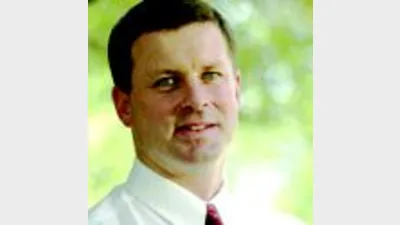Survey uncovers new adviser market



Andrew Creaser
Australia’s wealthiest consumers are not being properly serviced by the financial planning industry, according to research firm brandmanagement.
In August 2006, the research house surveyed 3,000 people across the nation who had $750,000 or more to invest above and beyond the money committed to their home and their superannuation fund.
It found those individuals who had in excess of $7 million to invest possessed different attitudes and approaches to investing their money than other high-net-worth (HNW) consumers.
This group was labelled as the super highnet-worth (SHNW), and it was discovered that financial planners have yet to service their needs properly.
In terms of investment characteristics, the survey showed SHNW individuals were more likely to use their own judgement when making investment decisions when compared to HNW individuals — 48.1 per cent as opposed to 39.8 per cent respectively.
In keeping with the above result, only 20 per cent of SHNW consumers used a financial planner to make their ultimate investment decisions, while 31.2 per cent of HNW consumers used this approach.
The survey also found SHNW people to be more quality orientated than the HNW, with 12.8 per cent of SHNW respondents strongly agreeing with this statement compared with 8.4 per cent of HNW participants.
According to Australian Bureau of Statistics figures compiled during the 2003-04 census, there are approximately 16,600 SHNW individuals in the country.
Genesys Wealth Advisers deputy managing director Andrew Creaser felt the results uncovered a distinct opportunity for financial planners to tap into a market that has not yet been accommodated, but not as a sole business activity.
“Based on the statistics, I think there is enough depth there to specialise, but given that nobody is actually in the space to focus on it specifically, it would represent a pretty high commercial risk. I think it’s likely that groups that are operating in the traditional space will try and extend their proposition off their existing resource base,” he explained.
Creaser believed SHNW individuals were showing a level of frustration at not being able to have their needs met by financial planners and that servicing this market is more about maintaining wealth as opposed to wealth creation techniques demanded by more traditional clients.
“They’re not so much looking for investment advice or the next big thing, they’re much more looking for structuring advice,” he said.
“These people are going to chase after stock tips that they get from their social circles, and really, what they are looking for is a sounding board to tell them that it’s not a stupid idea to do so, rather than us constructing a portfolio as we would for a $600,000 pre-retiree,” Creaser added.
Recommended for you
The top five licensees are demonstrating a “strong recovery” from losses in the first half of the year, and the gap is narrowing between their respective adviser numbers.
With many advisers preparing to retire or sell up, business advisory firm Business Health believes advisers need to take a proactive approach to informing their clients of succession plans.
Retirement commentators have flagged that almost a third of Australians over 50 are unprepared for the longevity of retirement and are falling behind APAC peers in their preparations and advice engagement.
As private markets continue to garner investor interest, Netwealth’s series of private market reports have revealed how much advisers and wealth managers are allocating, as well as a growing attraction to evergreen funds.











